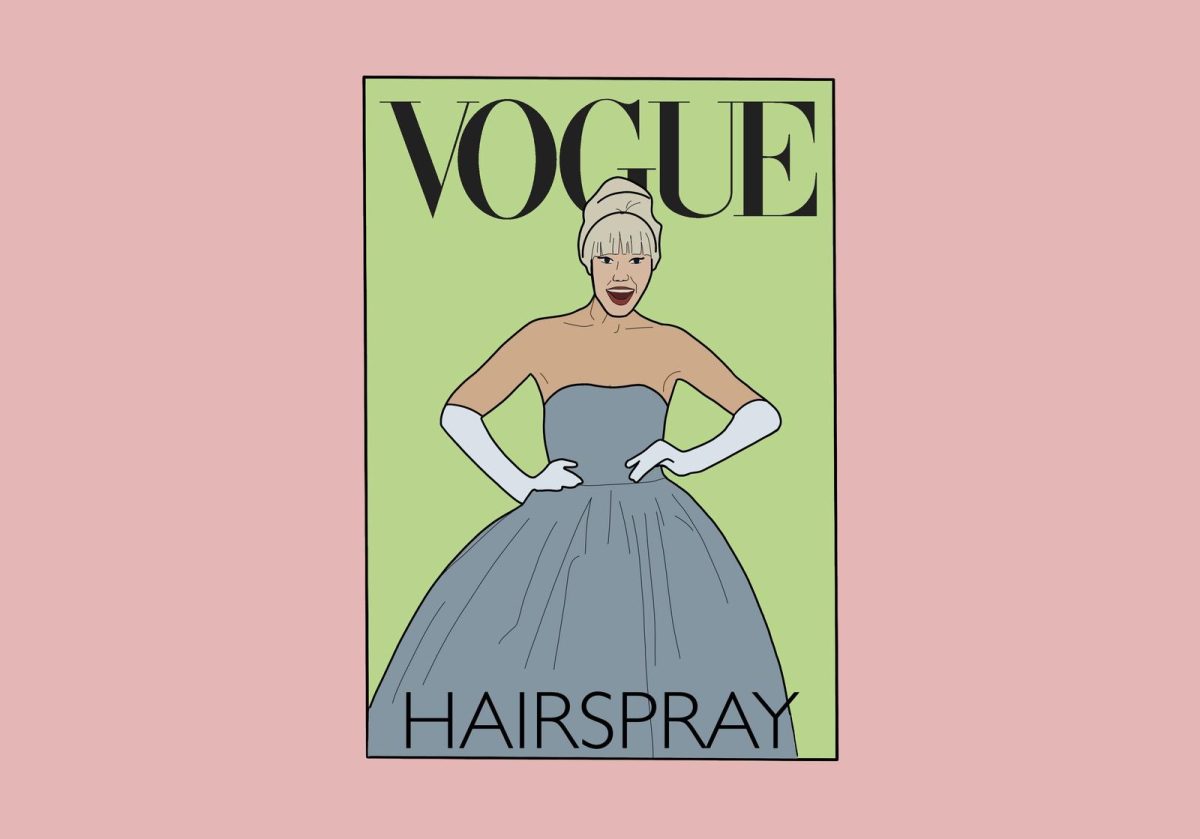Vogue’s latest ad, inspired by the 2002 musical and 2007 film Hairspray, had sparked a heated debate. The ad features world known supermodel Gigi Hadid stepping into the shoes of Amber Von Tussle, the film’s iconic blonde antagonist– and fans aren’t happy.
Hairspray isn’t just a fun, colorful story about dancing; it carries a power message of acceptance and breaking down barriers. Set in the 1960s in Baltimore, it follows Tracy Turnblad, a plus-sized teenager who dreams of dancing on “The Corny Collins Show”. Tracy faces intense inequity but bravely challenges outdated beauty standards while fighting for racial integration. Amber Von Tussle, in contrast, represents the forces of exclusion– a snobby, mean- spirited girl determined to keep Tracy as far away from the spotlight as she can.
The ad showcases Hadid in glamorous 1960s inspired outfits, complete with voluminous blonde hair and bold makeup reminiscent of Amber’s character. The set gives off the same vibe of The Corny Collins Show, with Hadid striking confident poses and channeling Amber’s signature smugness. While the visuals are eye–catching, many believe the campaign misses the mark.
For many, Vogue’s decision to center the ad around Amber instead of celebrating Tracy could feel like a slap in the face to the very message Hairspray promotes. Social media lit up with criticism quickly, with people expressing their negative opinions to the ad. They expressed frustration saying that the advertisement seemed to glorify the villain rather than embracing the story’s objective.
As the backlash grew, people began to question whether Vogue truly understood the deeper meaning of Hairspray, or if they were just simply drawn to the aesthetic. Vogue still has not responded to all of the backlash, leaving fans wondering if they will acknowledge the controversy.
This controversy has started an important conversation about representation and the messages we send through the media. Hairspray teaches us to embrace who we are and stand up for what is right. Many fans feel that focusing on Amber takes that message away. As discussions continue, people are hoping future campaigns will shine a light on stories that promote acceptance and diversity.



